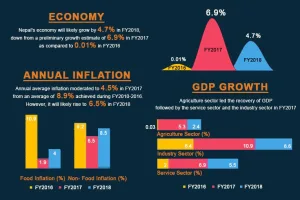
Can Nepali Mayor Balen Shah Transform the Economy’s Shape?
In recent years, the rise of innovative leaders in Nepal has captured global attention. Among them, Nepali Mayor Balen Shah has made significant strides in reshaping the urban landscape of Kathmandu. Known for his forward-thinking policies and bold decisions, Balen Shah’s leadership offers a glimpse into how local governance can be a powerful tool in driving economic growth and social change. But can this dynamic mayor truly transform the economic structure of Nepal, shaping it for future generations? Let’s explore.

Balen Shah: A New Era of Leadership
Nepali Mayor Balen Shah has been an unexpected force in Kathmandu’s political scene. Breaking away from traditional political norms, his leadership style is fresh, energetic, and often characterized by his focus on technology and innovation. His candid approach and willingness to challenge long-standing practices have made him a standout figure.
However, his rise to prominence also points to the possibility of a larger economic transformation within Kathmandu and Nepal at large. By combining modern solutions with an understanding of the local socio-economic challenges, Balen Shah aims to build a thriving, sustainable economy, one where both the city and its people can flourish.
The Economic Potential of Kathmandu under Balen Shah
Kathmandu, Nepal’s capital, has long been a hub for economic activity. With a growing population and a flourishing tourism industry, the city holds significant potential to drive national growth. Under Nepali Mayor Balen Shah, this potential could be unlocked in innovative ways.
- Smart Infrastructure Development
One of Balen Shah’s key policies is to modernize Kathmandu’s infrastructure. This involves not only the construction of roads and bridges but also the introduction of sustainable, eco-friendly solutions. Smart city concepts, like waste management through digital platforms and the use of renewable energy, are at the heart of his plans. These efforts can stimulate the local economy by creating jobs, reducing inefficiencies, and promoting long-term sustainability. - Supporting Local Businesses
Nepali Mayor Balen Shah understands that small and medium-sized enterprises (SMEs) are the backbone of any economy. In his vision, local businesses will have access to improved facilities, better infrastructure, and financial support. His focus on creating an environment that nurtures entrepreneurship can lead to the rise of local startups, boosting the economy and reducing reliance on foreign imports. - Tourism Growth with a Local Focus
Nepal’s tourism industry is one of its most significant economic drivers, and Balen Shah’s vision for Kathmandu includes enhancing its status as a global tourist destination. By integrating sustainable tourism practices, he can help local businesses thrive while ensuring that the city’s unique culture and environment remain intact. This approach has the potential to increase both domestic and international tourism, bringing in revenue that can be reinvested into the community.
Technology and Innovation at the Core
At the heart of Nepali Mayor Balen Shah’s economic strategy is the use of technology. He is a staunch advocate for the integration of tech solutions to improve governance, communication, and service delivery. By using digital platforms for everything from civic services to urban planning, Balen Shah is setting the stage for a more efficient, transparent government.
Moreover, his push for tech infrastructure can inspire young people to innovate and build tech startups within Kathmandu. This could lead to an economic boom similar to what has been seen in other cities globally, where technology acts as a driving force for growth.
Social and Environmental Change: A Holistic Approach
Transformation is not just about economic policies. For Balen Shah, the idea of growth extends beyond monetary measures. His administration places significant emphasis on the social and environmental well-being of Kathmandu’s residents. By fostering a clean, green environment, encouraging sustainability, and improving social equity, Balen Shah aims to build a balanced, inclusive economy.
For instance, his focus on renewable energy, waste management, and green spaces is crucial in creating a future-proof economy that can thrive in the face of climate change. These policies not only benefit the environment but also position Kathmandu as a leader in sustainable urban development in the region.
Challenges Faced by Balen Shah in Economic Transformation
Despite his visionary plans, Nepali Mayor Balen Shah faces significant challenges in transforming the economic landscape of Kathmandu. Resistance from traditional political structures, bureaucratic hurdles, and the need for widespread support from local communities are obstacles he must overcome. Moreover, Nepal’s broader economic issues, such as unemployment, inflation, and a lack of industrial diversity, require holistic solutions that extend beyond Kathmandu itself.
Additionally, his reliance on digital technology and innovation could face hurdles in terms of access and infrastructure, especially in rural parts of Kathmandu or the wider Kathmandu Valley. Ensuring that all citizens benefit from these developments is key to the success of his economic vision.
The Way Forward: Can Balen Shah Lead the Change?
So, can Nepali Mayor Balen Shah transform the economy? The answer is not simple. However, with the right support, both from the public and the government, his innovative approach could indeed reshape Kathmandu’s economy and provide a model for other regions in Nepal. His leadership, rooted in transparency, modern technology, and sustainability, holds the promise of a bright economic future.
For Kathmandu to thrive, Balen Shah’s initiatives must be nurtured and expanded. As more Nepali cities and towns look to adapt and grow in the digital age, the lessons learned from Balen Shah’s tenure could serve as a roadmap for a nationwide economic transformation.
Conclusion
In conclusion, Nepali Mayor Balen Shah has laid down the groundwork for a transformative economic vision in Kathmandu. His focus on modernizing infrastructure, fostering local businesses, and integrating technology into governance shows great promise. While challenges remain, his approach could serve as a model for future urban economic development in Nepal. The coming years will reveal whether his vision will truly transform the economic shape of Kathmandu and, ultimately, the nation.
